MS-ETS1-3
Analyze data from tests to determine similarities and differences among several design solutions to identify the best characteristics of each that can be combined into a new solution to better meet the criteria for success.
-
 Tech
TechEngineers cook up a new way to tackle CO2: Make baking soda
Engineers have found a material that can collect carbon dioxide from the air. When later mixed with water, it forms baking soda that can be shed in the sea.
-
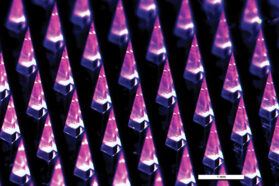 Tech
TechNew tech 3-D prints ouchless COVID-19 vaccine patches
A new compact 3-D printer can produce COVID-19 vaccine patches. These are less painful than the jab and can be stored more easily than liquid vaccines.
-
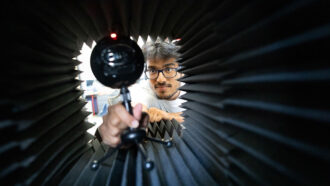 Tech
TechTalking through a tube can trick AI into mistaking one voice for another
Researchers crafted tubes that can trick AI into mistaking one person’s voice for another’s. Bad guys could use such tricks to hack into accounts.
-
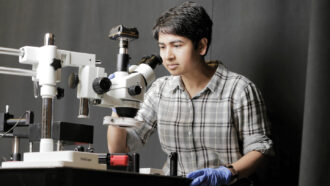 Tech
TechNanobots can now enter brain cells to spy on what they’re doing
Fleets of advanced versions may one day be able to detect disease and then go about surgically treating it — without ever opening the skull.
By Nikk Ogasa -
 Tech
TechThis electronic bandage sterilizes wounds with flashes of light
Dentists have sterilized medical equipment with ultraviolet-C light for years. Applying this tech to bandages had proven a challenge — until now.
-
 Tech
TechGravity ‘batteries’ might help a weighty renewable-energy problem
To store the energy generated by wind and solar power, researchers are looking at mammoth systems that raise and lower weights.
-
 Tech
TechNew device can harvest clean energy from humid air anywhere
Unlike solar power, this new source of electricity is available day or night.
By Laura Allen -
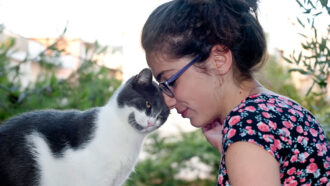 Tech
TechWhat is my pet saying? Scientists are working to find out
Researchers are using artificial intelligence for pet-translation apps. One day, it might put into words what our furry friends are vocalizing.
-
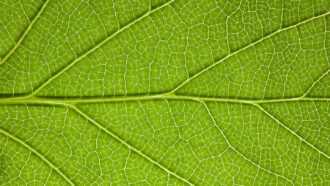 Tech
TechHigh-tech solar ‘leaves’ create green fuels from the sun
Chemists make a liquid alternative to fossil fuels from carbon dioxide, water and the sun. Their trick? They use a new type of artificial leaf.
By Laura Allen -
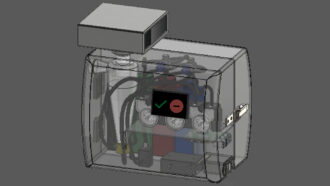 Tech
TechA ‘mini cyclone’ helps detect coronavirus in the air
A new device can detect from seven to 35 coronavirus particles per liter of air in minutes. That’s close to a PCR test’s sensitivity — but much quicker.
-
 Materials Science
Materials ScienceAnalyze This: A new fabric mimics polar bears’ pelts for warmth
With layers that work like polar bears’ skin and fur, a material absorbs light and keeps it from escaping.
-
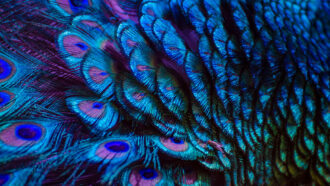 Tech
TechNanocrystal ‘painted’ films may someday help relieve summer heat
The rainbow palette and cooling powers of new plant-based films comes from their microscopic surface patterns of tiny crystals.